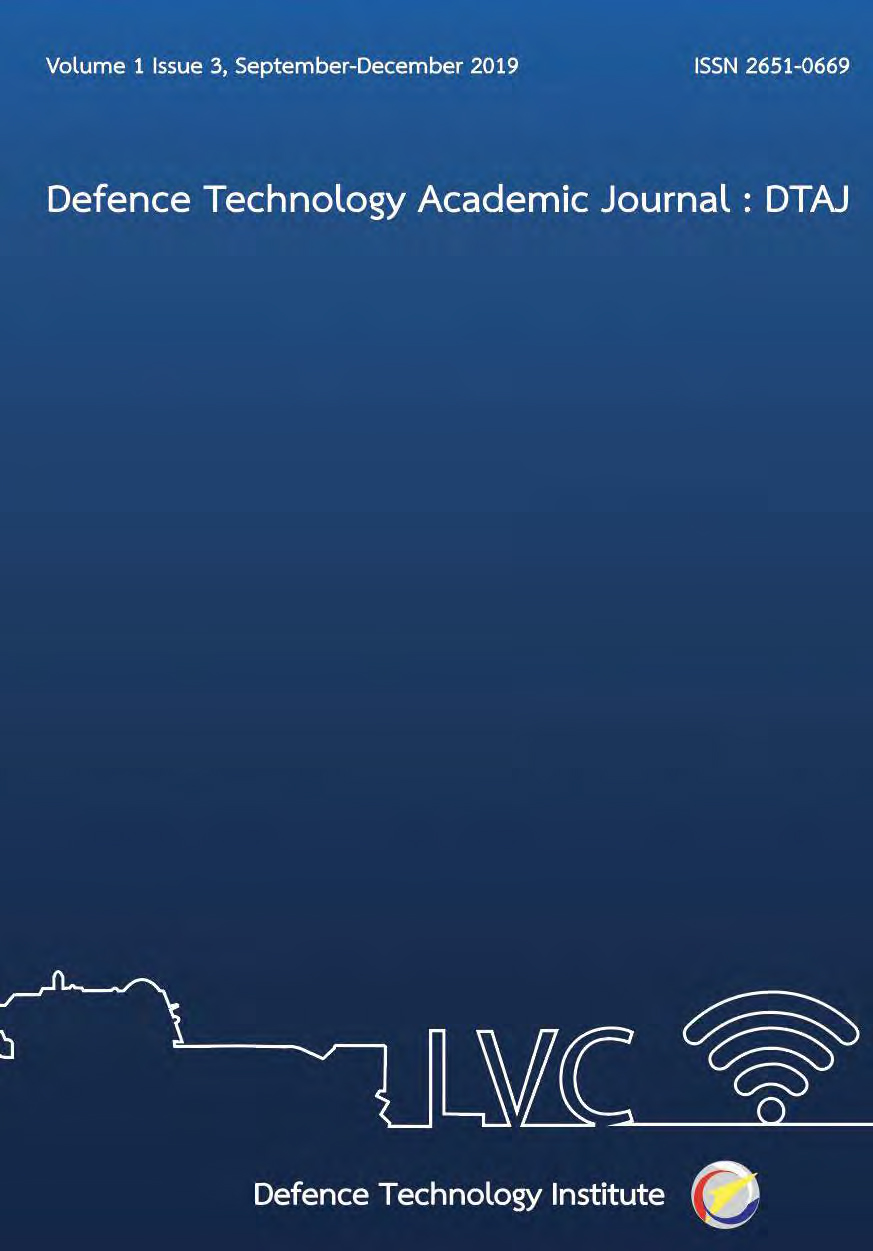Ethics In Academic Paper Writing
Main Article Content
Abstract
Ethics in academic writing is something that should be considered not only to pay respect to the owner but also to the reference of the article. Neglecting or corruption in academic circles is considered as misconduct. Regulatory bodies must oversee and set a strict measure with distinct penalties. There should follow a definitive penalty for any misconducts of ethics in academic writing. To prevent repeated behavior, the authors present the problems of academic corruption in academic circles and the problems that could involve researchers in case of the misconducts. The significance of the academic corruption is also presented with causes and solutions to the academic corruption being clarified.
Downloads
Article Details

This work is licensed under a Creative Commons Attribution-NonCommercial-NoDerivatives 4.0 International License.
Journal of TCI is licensed under a Creative Commons Attribution-NonCommercial-NoDerivatives 4.0 International (CC BY-NC-ND 4.0) licence, unless otherwise stated. Please read our Policies page for more information...
References
เอกสารประกอบ "พระราชบัญญัติจัดตั้งสถาบันเทคโนโลยีป้องกันประเทศ พ.ศ. 2562”, แหล่งที่มา http://www.dti.or.th/download/190501141133_3DTI-2562.PDF/, 25 มกราคม 2563.
กิตติยา สุทธิประภา. “Plagiarism : ความสำคัญของการป้องกันการโจรกรรมทางวิชาการ”., แหล่่งที่มา https://ejournal.kku.ac.th/information/article/view/354, 25 มกราคม 2563.
นุกุลรัตน์ ลวงลายทอง. “การวิเคราะห์การอ้างถึงในบทความวิชาการของนักวิจัย สถาบันเทคโนโลยีป้องกันประเทศ (องค์การมหาชน) ประจำปีงบประมาณ 2559-2560”. วารสารสถาบันเทคโนโลยีป้องกันประเทศ, 2562, 101-109.
สภาวิจัยแห่งชาติ. จรรยาบรรณการวิจัย. แหล่งที่มา https://sp.mahidol.ac.th/pdf/ref/ethic.pdf, 25 มกราคม 2563.
มารุต ชาติพราหมณ์, “แนวคิดพีระมิดคู่เพื่อเผยแพร่งานวิชาการด้านเทคโนโลยีป้องกันประเทศสู่ประชาคม”, วารสารเทคโนโลยีป้องกันประเทศ, 2560, 64-67.
Chamnan Kumsap, “The Compliance Of Project Management With Corporate's Research And Development Strategies: Dti's Virtual Shooting Range Case Study”, The 7th International Defense And Homeland Security Simulation Workshop, 2017, pp. 25-32.
ชำนาญ ขุมทรัพย์, "การถ่ายทอดเทคโนโลยีของโครงการวิจัยและพัฒนาสู่ภาคการศึกษาและภาคอุุตสาหกรรม", วารสารวิชาการป้องกันประเทศ, 2562, 12-25.
ไทยพับลิก้า, “ครั้งแรกในประวัติศาสตร์ สภาจุฬาฯ ถอนปริญญาเอก “ศุุภชัย หล่อโลหการ” ไม่่มีผลย้อนหลัง “บวรศักดิ์ ”แจงในอดีตอาจจะใช้โดยสุจริต”, แหล่งที่มา: https://thaipublica.org/2012/06/plagiarism-5/, 19 ธันวาคม 2562.
อุทาหรณ์ ก.ค.ศ. สั่งปลด "ผอ.ร.ร." ลอกผลงานทางวิชาการ.,แหล่งที่มา http://www.trueplookpanya.com/new/cms_detail/news/13765, 19 ธันวาคม 2562.
บุษบา มาตระกูล. “Plgiarism : โจรกรรมทางวรรณกรรม. “ก้าวทันโลกวิทยาศาสตร์”, 2551, 7-10.
ธนพร แย้มสุดา. “การทุจริตทางวิชาการ : ปัญหาที่บั่นทอนความเข้มแข็งของสังคม”, 2560, 175-181
เวคิน นพนิตย์ : จริยธรรมในการทำผลงานวิชาการในการทำผลงานวิชาการสาธารณสุขเพื่อก้าวสู่ตำแหน่งทางวิชาการ. The Professional of Thailand : 95-99, 2539. กองบรรณาธิการวารสารมหาวิิทยาลัยราชภัฎยะลา
พระราชบัญญัติ มาตรฐานทางจริยธรรม พ.ศ. ๒๕๖๒, แหล่งที่มา http://www.ratchakitcha.soc.go.th/DATA/PDF
Lee Chu Keong : Scientific Fraud. Retrieved from http://onlineconference.dusit.ac.th/2019/download/Scientific-Fraud.pdf, 19 ธันวาคม 2562.
จันทร์แรม รูปขำ. การตรวจสอบผลงานการโจรกรรมทางวรรณกรรม, แหล่งที่มา https://www3.rdi.ku.ac.th/wp-contents/uploads/2013/05/KM_plagiarism.pdf, 19 ธัันวาคม 2562.
ชูชาติ หฤไชยะศักดิ์ และสันติพงษ์ ไทยประยูร. การละเมิดลิขสิทธิ์ ผลงานวิชาการและการใช้โปรแกรม CopyCatch ในการตรวจสอบการคัดลอกผลงานทางวิชาการ, แหล่งที่มา http://copycatch.in.th/20170901-copycatch-presentation.pdf, 19 ธันวาคม 2562.
ศูนย์เทคโนโลยีอิเล็กทรอนิกส์และคอมพิวเตอร์แห่งชาติ. CopyCat, แหล่งที่มา https://www.nectec.or.th/innovation/innovation-software/copycatch.html/, 27 มกราคม 2563.
สำนักงานพัฒนาวิทยาศาสตร์และเทคโนโลยีแห่งชาติ. ตรวจจับการคัดลอกด้วย Anti-Kobpae, แหล่งที่มา https://www.nstda.or.th/th/nstda-knowledge/2945-anti-kobpae
NUTCHAPONG R. อักขราวิสุทธิ์ : ระบบตรวจสอบการลักลอกผลงานทางวิชาการ, แหล่งที่มา https://library.mju.ac.th/pr/?p=822, /, 27 มกราคม 2563.
รายชื่อสถาบันอุุดมศึกษาที่ร่วมลงนามบันทึกข้อตกลงความร่วมมือทางวิชาการเรื่อง "การตรวจสอบการลอกเลียนงานวรรณกรรมด้วยระบบอักขราวิสุทธิ์" กับ จุฬาลงกรณ์มหาวิทยาลัย, http://www.akarawisut.com/clients.html, 27 มกราคม 2563.
บัณฑิตวิทยาลัยจุุฬาลงกรณ์มหาวิทยาลัย. “สิ่งพิมพ์วิทยานิพนธ์ การคัดลอกผลงานวิจัย ประเด็นสำคัญที่ควรรู้”, แหล่งที่มา http://www.grad.chula.ac.th/download/files/Plagiarism.pdf, 19 ธันวาคม 2562.


